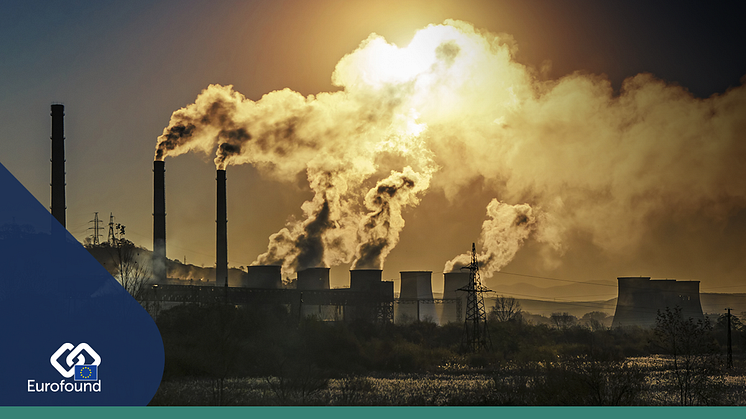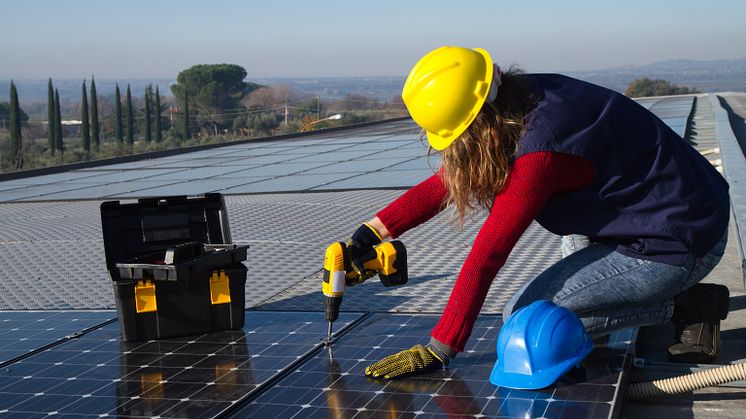
Blog post -
Europe’s low-carbon transition makes economic sense
By James Higgins
At the very outset of its mandate, the new European Commission presented the European Green Deal; establishing the objective of becoming the first climate-neutral bloc in the world by 2050. The initiative emphasises the seriousness which the European Commission places on the climate and biodiversity challenges Europe faces in the coming decades, and proposes an unprecedented mobilisation of resources to finance a transition to a sustainable economy. There has already been much speculation about the potential impacts of these proposals on the EU’s carbon footprint, but it should also be emphasised that, in addition to being necessary for the planet, they are also necessary for Europe’s economy - which is likely to see dividends in terms of both growth and employment from a low-carbon transition - and may even help ease Europe’s regional imbalances.
Last year, the Future of Manufacturing in Europe (FOME) project – an EU initiative proposed by the European Parliament and delegated to Eurofound by the European Commission – published findings that the successful transition towards a low-carbon economy, as defined by the Paris Climate Agreement, was projected to result in a 1.1% growth in GDP and a 0.5% growth in employment in the EU by 2030. This was compared to a ‘business as usual’ baseline forecast. On a national level, the study projected that Latvia, Malta and Belgium would experience the largest boost to GDP. At close to 6%, the projected growth in Latvia’s GDP was by far the most significant – this being largely attributed to the energy efficiency investment required, and the reduction in fossil fuel imports relative to GDP.
According to the research, Belgium was also among the countries that would experience a marked increase in employment from the economic restructuring required to fully implement the Paris Agreement, resulting in increased consumer expenditure in labour intensive sectors such as retail, hospitality and catering. Spain and Germany were projected to experience a similar phenomenon; in the case of Spain the report pinpoints the importance of solar photovoltaic electricity and lower consumer energy prices in generating disposable income to the benefit of labour-intensive sectors. The only country projected to experience a (comparatively marginal) net decrease in employment was Poland, due to its large coal mining sector.
All EU Member States and the United Kingdom were projected to experience an economic boost from implementing the Paris Climate Agreement under the projections of the Future of Manufacturing in Europe project.
The projections detailed in the report were modelled on a basis that there would be no significant labour market frictions from the transition, in particular that the labour force would adapt to the structural change with regards to skill requirements. To this extent, the findings show how effective and comprehensive cooperation between regional, national and European level - as well as between governments and social partners - in the transition can bring tangible economic and employment dividends. What is also evident in the research is that there are few sectors that would be broadly negatively impacted by this transition; of the nine sectors analysed, just two - utilities and mining - would see a net job loss compared to the baseline scenario. Even agriculture, often considered to be adversely exposed to job loss from a low-carbon transition, would see a 0.5% job growth compared to the baseline scenario by 2030.
Despite these findings, it would be remiss to downplay or negate apprehension over the challenges of making a low-carbon transition to be found in many rural areas and communities throughout Europe. The European Commission has emphasised the role of Member States in identifying regional priorities and committing to match each euro from the Just Transition Fund with money from the European Regional Development Fund. President von der Leyen, in particular, has emphasised the need to prioritise vulnerable regions and communities and ensure that no-one is left behind.
There are clear reasons for this sensitivity to regional balance. Eurofound’s 2019 European Jobs Monitor shows that employment in capital city regions in the EU’s largest Member States outstripped that of other domestic regions between 2002 and 2017. The European Quality of Life Survey 2016 also showed that people in rural areas report a lower quality of life and life satisfaction, as well as a higher difficulty in making ends meet, than those living in Europe’s capitals and metropolitan centres. It is therefore important that the Green Deal is rolled out and communicated in a way that demonstrates how it can mitigate, not accentuate, regional imbalance.
Europe’s economy, and particularly the economy of rural Europe, may have it all to gain from a low-carbon transition, but getting everyone on board could turn out to be the greatest challenge.
Read more:
- European Commission: A European Green Deal
- Eurofound: Energy scenario: Employment implications of the Paris Climate Agreement
Read further:
- Policy Brief: What makes capital cities the best places to live?
- Policy Brief: Is rural Europe being left behind?
- Publication: European Jobs Monitor 2019: Shifts in the employment structure at regional level
- Data and resources: Regional shifts in employment structure 2002-2017




